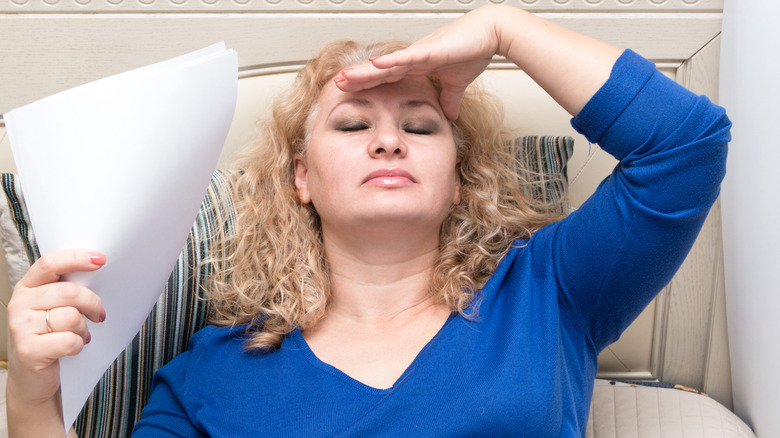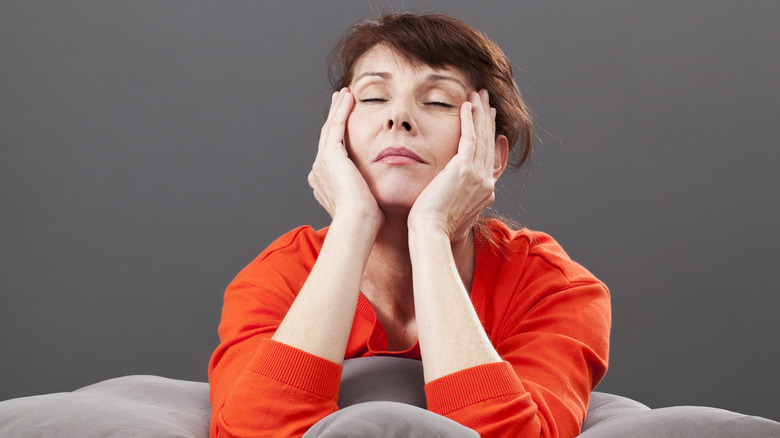What Is The Average Age For Menopause To Start?
Menopause is a time in a woman's life when her menstrual cycle stops (via Mayo Clinic). It often occurs between the ages of 40s or 50s, but the average age in the United States is 51. It's diagnosed after one year without menstruation. While there's no way to predict exactly when a woman will begin menopause, your family history may offer some clues (via Healthline). Chances are, you'll likely experience menopause at or around the same age as your mother.
During menopause, women may experience a number of symptoms, including hot flashes, mood changes, and disrupted sleep. In the months and years leading up to menopause, a time known as perimenopause, vaginal dryness, chills, night sweats, weight gain, thinning hair, dry skin, and loss of breast fullness are also common. Most women experience irregular periods during this time. Typically, perimenopause begins in a woman's mid to late 40s. It can last from months to years, with the average length of this phase being about four years.
How to manage symptoms of menopause
Symptoms of menopause can be quite uncomfortable. Hot flashes and emotional symptoms may disrupt sleep, which in turn can affect energy and concentration levels (via Cleveland Clinic). If menopause symptoms are affecting your quality of life, there are treatment options.
One way to go is hormone replacement therapy, or HRT (via Good Rx). HRT works by increasing hormone levels to help ease menopause symptoms like hot flashes, vaginal dryness, night sweats, hair loss, and mood swings. HRT can be given in the form of estrogen therapy or estrogen progesterone/progestin therapy. As with most prescribed medications, HRT does not come without health risks. Talk to your doctor to determine if this is the best course of treatment for you.
Lifestyle modifications can also help ease menopause symptoms. Cutting down on caffeine and avoiding spicy foods can help minimize hot flashes. You may also want to try adding foods containing plant estrogen to your diet, such as soybeans, chickpeas, lentils, beans, grains, flaxseed, and fruits and vegetables. Keeping your sleeping environment at a cool temperature, wearing light clothing, losing weight, and quitting smoking may also help with hot flashes. Finally, exercising regularly can help improve sleep and mood.


